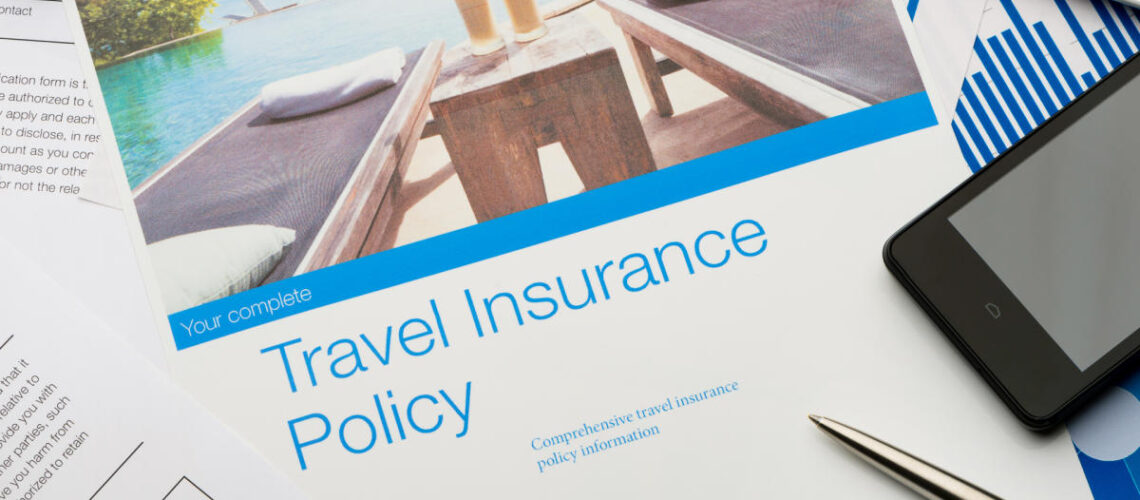Avoid Having Your Travel Insurance Claim Denied — 5 Tips From an Expert
December 16, 2024

- Minnesota law requiring wigs to be covered by insurance goes into effect Jan. 1
- Shark Attack Survivor Crowdfunds For Prosthetic Hand After Insurance Company Refused To Pay
- California wildfires raise concerns about insurance coverage, rising premiums
- Insurance stocks sell off sharply as potential losses tied to LA wildfires increase
- Why are health insurance premiums in Massachusetts so expensive?
Most travel experts agree that carrying travel insurance can save you from stress, hassle and added costs if your trip is canceled or delayed or if your luggage is lost. While travel insurance claim denials are rare, they do happen. The United States Travel Insurance Association stated that less than 10% of claims are denied, as reported by travel insurance website Insubuy. Even so, you don’t want to be in that minority.
Bạn đang xem: Avoid Having Your Travel Insurance Claim Denied — 5 Tips From an Expert
Read More: 5 Google Flights Tricks To Help You Land the Cheapest Holiday Airfare
Try This: Why Skipping a Financial Advisor Could Be Your Biggest Money Mistake
Meghan Walch, director of product for InsureMyTrip, offered several tips to improve the odds of claim approval.
Also see four new travel rules that may save you big money this holiday season.
Earning passive income doesn’t need to be difficult. You can start this week.
Understand What’s Covered in Your Policy
Some travel insurance policies cover trip delays or cancellations, while others cover only cancellations. Likewise, some medical travel insurance will not cover preexisting conditions. Understand the policy you’re purchasing so you have the coverage that matters most to you.
“Be sure to review and understand a travel insurance policy before purchasing,” Walch said. “Every policy has exclusions for each type of coverage, and coverage limits. By understanding, you will know what you can and cannot file a claim for and receive reimbursement.”
If you aren’t sure if a specific instance is covered, you can speak with your travel insurance company or your travel agent. It might pay to try filing even if you aren’t sure. “A general rule of thumb is that if a covered travel issue costs you money, you should file a claim,” Walch said.
Check Out: 10 Airline Rewards Programs That Provide the Most Value for Your Points
Submit the Correct Forms
“Sometimes a claim is denied because of a simple paperwork error,” Walch said. To avoid wasting time and having your claim denied, follow the instructions on the claim form carefully and make sure you forward any requested documentation, including receipts and paperwork.
If you’re filing a medical claim, Walch explained that you should “ask the physician to provide the insurance company with details about treatment, medical conditions and your prognosis.”
Keep All Your Receipts
Travel receipts show proof that a trip delay or cancellation cost you money. “You’ll need proof that the trip was canceled before departure and what (if any) of your trip cost was reimbursed by the travel suppliers. You’ll [also] need documentation proving the cause of the cancellation,” she said.
Xem thêm : A warning shot to the rapacious health insurance industry
For trip delays, there are a few more pieces of documentation you’ll want to provide. “You would need a receipt from the hotel showing that you paid for it and verify that you were not compensated by the airline, etc. You may also need to show proof of your original travel itinerary and the rebooked flight to verify the delay meets the required number of hours,” Walch said. “Any meals or additional transportation required during a covered delay may also be covered.”
Show Proof of Lost or Stolen Belongings
If you’re filing a claim for lost luggage or items stolen on your trip, you’ll also want to show evidence of their existence.
Having receipts, especially for big-ticket items such as jewelry or electronics, can help. If you don’t have receipts, however, Walch recommended taking photos of what’s in your luggage as you’re packing as evidence of what’s in them.
If you’re filing a claim for stolen items, you’ll need a police report with a list of the items.
File Promptly
“Contact the travel insurance company right after a travel issue happens,” Walch said. The travel insurance representative can help you make sure you have all the proper documentation so you don’t have to track down paperwork or copies of receipts after you return home.
This is especially important if you are filing a claim for medical treatment abroad. “It can be extremely difficult to get this paperwork once you are home,” Walch said.
More From GOBankingRates
This article originally appeared on GOBankingRates.com: Avoid Having Your Travel Insurance Claim Denied — 5 Tips From an Expert
Nguồn: https://propertytax.pics
Danh mục: News
